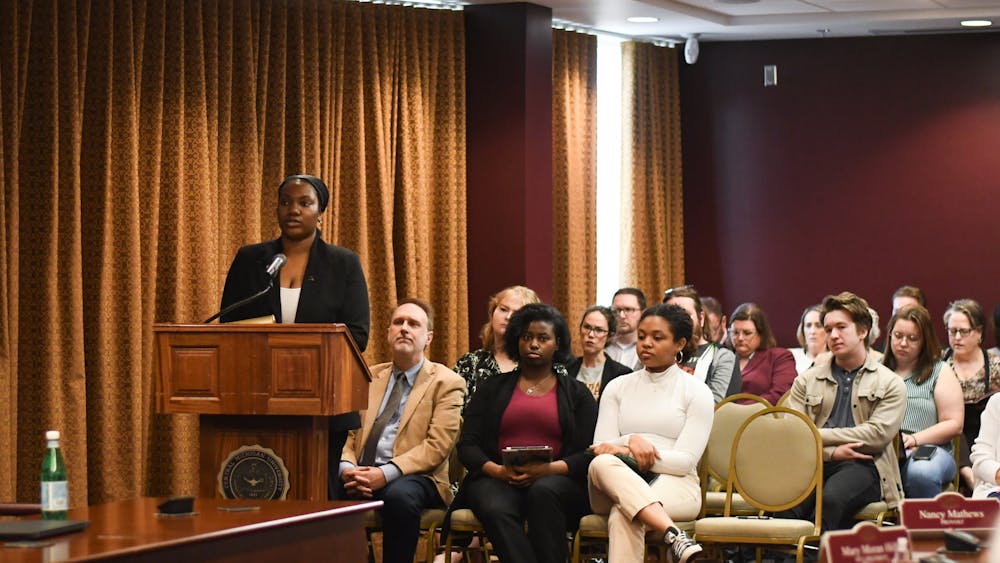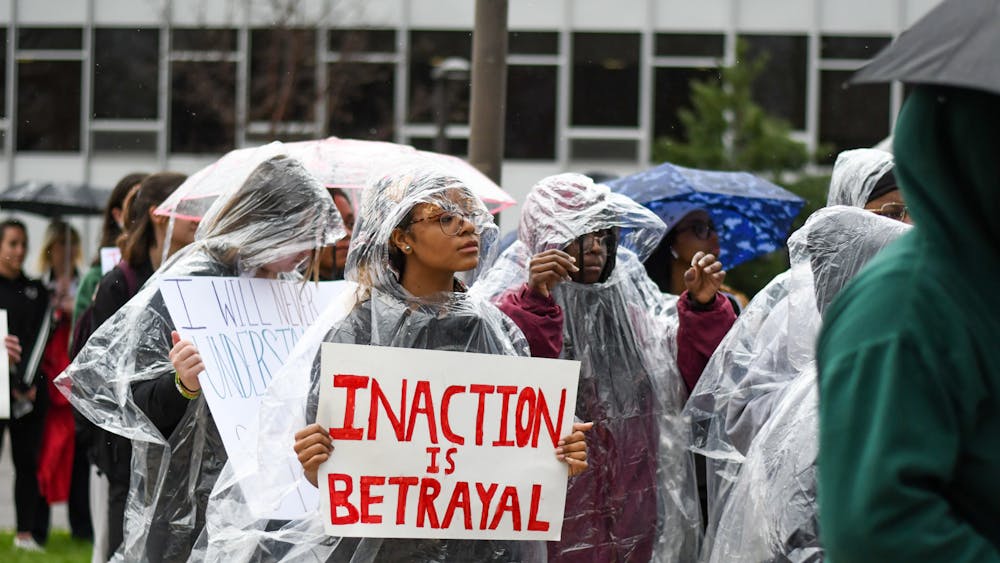Cotter, panelists talk legitimizing ridesharing companies in Michigan
A panel hosted by Generation Opportunity Nov. 17 discussed ridesharing companies potentially running taxis out of business in Michigan. At the same time, lobbyists are attempting to run companies like Uber and Lyft out of the state.
Kevin Gardner, state director of Generation Opportunity, a nonprofit grassroots organization aimed at helping millennials making legislative change, opened the panel by musing on the current state of the free market.
"It's not the same economy that our parents are used to," Gardner said. "My father worked for Ford for 35 years. What we're seeing in this economy (now) is we're being very entrepreneurial. We're making opportunities for ourselves, but the government is in the way."
Panelists included Mike Van Beek, director of research at the Mackinac Center for Public Policy, Lawrence Brunner, Central Michigan University economics faculty members, Tim VanDongen, an Uber driver and Founder of Ryde Media and Michigan Speaker of the House Kevin Cotter.
VanDongen, the first panelist to speak has driven for Uber for nearly a year and said the company has given him an "entrepreneurial spirit."
In Michigan, it is illegal for ridesharing companies like Uber and Lyft to operate.
"(Uber) is a great way to supplement income. I think we need to be open to these opportunities when they come along," Cotter said. "I gave my full support to these bills when they came through the House. I think it's something we need to get done."
Cotter cited ridesharing companies as a way to keep millennials in the state after graduation. By providing a relatively easy to obtain job where an employee could pick their own hours, he described jobs at Lyft and Uber as offering a "great alternative" to taxi driving.
"There's more that we need to do to continue to make Michigan more attractive. There are so many factors people look at," Cotter said. "Just this week, we passed a transportation funding package. That's something that I think is key because the quality of the roads are just deplorable."
Van Beek said the reason Uber and Lyft drivers are operating in places like Lansing and Ann Arbor is because drivers went to local municipalities and gained permission to legally operate.
"What the state legislator has done in the House is to prevent this very cumbersome burden on ridesharing companies to have to go to each municipalities and get permission is (the House) has created statewide regulations," he said. "These (laws) require all (ridesharing) drivers to have good driving records, mandatory vehicle checks, insurance on their vehicles and many other stipulations for the companies."
Creating these regulations would allow ride sharing companies to open up in any state immediately and they would be functioning under these statewide regulations rather than local regulations they have to comply with.
VanDongen said many of his coworkers have been stopped by police while driving for Uber and local law enforcement does not know how to regard them.
"The police (in Ann Arbor) don't know what they're enforcing because (laws) are so wishy-washy," he said. "Some drivers get pulled over (and charged) as a taxicab without a license (while) some get pulled over for not having the correct insurance liability levels or the wrong amount of coverage. These drivers are then forced to drive in other markets outside of Ann Arbor or they have to stop driving for Uber until their court case is done."
VanDongen said some tickets issued for miscellaneous charges can result in up to 90 days in jail or over $1,000 in fines for "basically just being an Uber driver."
Regulation in the Michigan state House has passed in favor of setting up a ridesharing law such as the one Van Beek is talking about. A series of bills have been sitting in the Michigan state Senate since June, but no action has been taken since.
Gardner urged those capable to write to their senators about making statewide ridesharing companies in Michigan a reality. By texting the word "drive" to 52886, an automatic email related passing to ridesharing legislation will be sent to a Michigan state senator.
"There are a package of bills which passed in the House in June and now they're in the Senate. The legislation that is in the Senate is particularly bad because it actually has almost all the same regulations that are in the House bills, but with more added on," Van Beek said. "The ones that have been added on are allowing local municipalities to basically pile on the regulations that they want to."
Some regulations Van Beek has heard of include forcing Uber drivers to apply for a $35 chauffeur's license, which require the driver to be at least 16 years of age, have completed driver education and passed a chauffeur license knowledge test.
"Where it stands right now, we're really trying to prevent the bad Senate legislation from going any where and encourage the Senate to agree to the bills the House has passed," he said.





